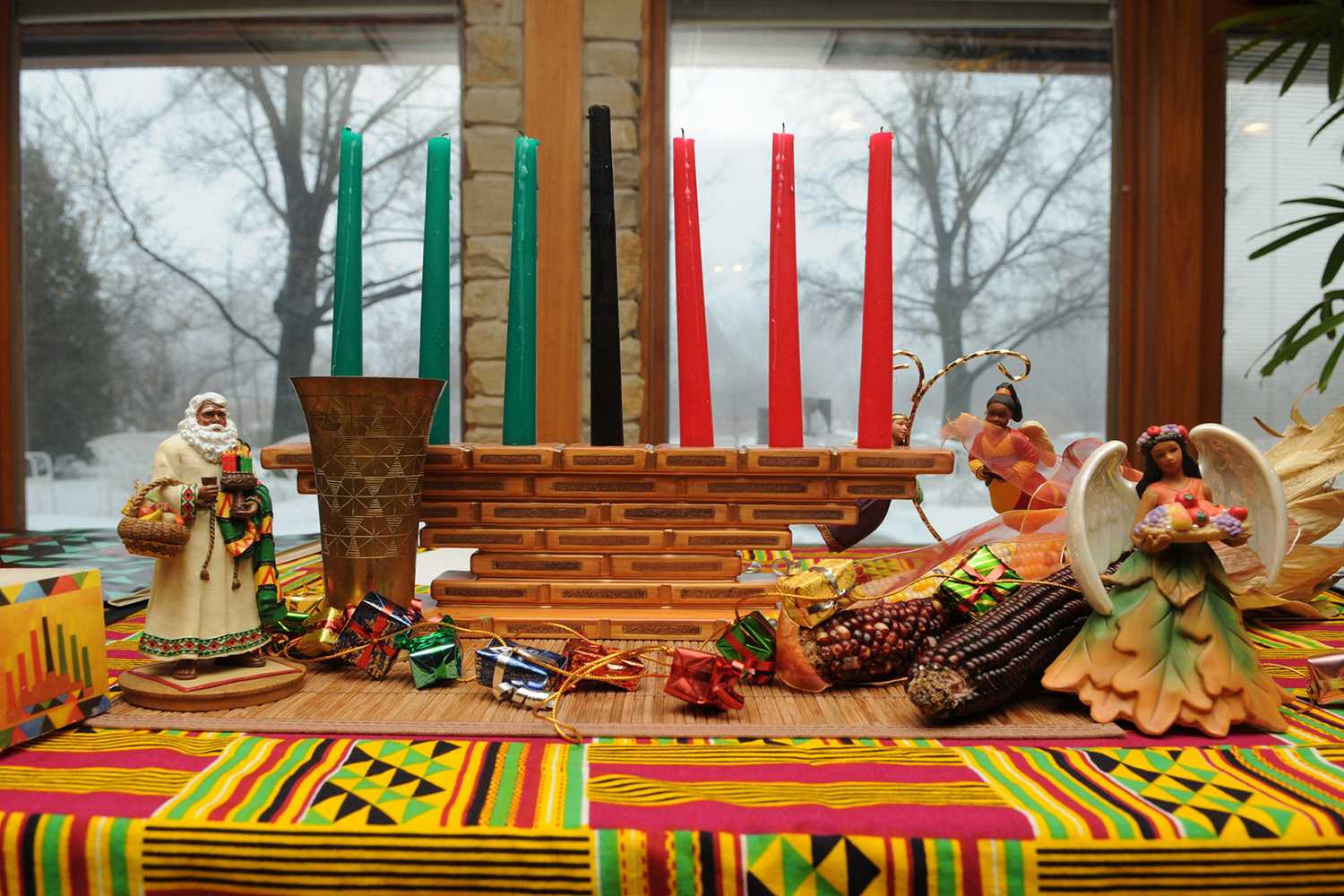Your donation will support the student journalists of Akins High School. Your contribution will allow us to purchase equipment and cover our annual website hosting costs.
Students celebrate diverse holidays in December
December 17, 2014

Christmas: The Christian Holiday
Christmas is a holiday that commemorates the birth of Christianity’s savior, commonly known as Jesus Christ, or son of God.
The holiday itself embodies much of the traditions and festivities of this season, and it is relatively difficult for anyone in western society to avoid the jingle bells, holiday sales and twinkling lights associated with Christmas.
The concept of Santa Claus, originally known as Saint Nicholas, a bishop from the fourth century, has been widely accepted by many, especially through businesses and in marketing, encouraging the practice of exchanging gifts.
However, underneath the commercial and materialistic take on this holiday lies the religious traditions, where individuals of the Christian faith may go to church or hold prayers to honor the birth of the central figure of Christianity.
Christmas essentially celebrates family, peace, and charity. The most prominent Christmas movies of modern time encourage these morals. The Grinch features a grumpy, greedy fictional character that learns that not all gifts have to be tangible or bought in a store; Christmas Carol teaches the importance of knowing what is truly valuable in life.
Though some families participate in Christmas mass, many also stay at home with their families. A typical Christmas Eve is spent in anticipating the next morning after Santa Claus has dropped down the chimney to leave a present under a decorated Christmas tree. Families spend the day together, often having relatives over sharing a big meal at some point in the day.
“My wife usually prepares a big feast the day of Christmas, and we use plates special for the occasion,” math teacher Christopher Aguilar said. “We get up in the morning and the kids open their presents, and we go to my parents’ house for lunch.”
Traditions do vary, as Christmas is celebrated by different ethnic groups. And some families have their own personal traditions as well.
“At around 2 or 3 o’clock in the morning, my dad sets off the fire alarm to wake us all up, to set up the illusion that Santa Claus broke into our home,” junior Aimee Morales said.
The family meal is a favorite aspect for many at Christmas time.
“My family gets together and everyone brings something to the table,” senior Maria Rico said. “We talk about the good things that happened during the year while we eat.”
Christmas is fundamentally a time of good-tidings, and being with family and close friends.
“I feel especially loved, special, and thankful when we celebrate Christmas,” Rico said.

Kwanzaa: The African American Celebration
Some African-Americans celebrate Kwanzaa at this time of the year, which is a tradition that honors African heritage.
The celebration takes place from Dec. 26 to Jan. 1.
“ Kwanzaa lasts for a really long time because you want to see all of your family and usually your family is huge,” junior Cassie Obi said.
Unlike Christmas and Hanukkah, Kwanzaa is not affiliated with a religion. The seven principles of Kwanzaa are Unity, Self-determination, Work and responsibility. Cooperative Economics, Purpose, Creativity and Faith.
“It’s not about the holiday,” senior Smaira Richardson said. “It’s about unity; getting your family together.”
Families gather and light the kinara, a candleholder with seven candles in the colors of red, black, and green. The black candle is placed in the center and used to light the other flames from left to right. The candles all represent the Seven Principles.
“As each day goes by you burn a candle together as a family,” Richardson said.
Kwanzaa started during the 1960s Civil Rights movements, and is a way to honor the African heritage of black Americans whose ethnic history was stripped away.
“It’s a very important holiday because it main focus is to keep family together,” Obi said.

The Enlightenment Of Siddhartha Gautama
Humility, compassion, and kindness are the central tenets recognized on the day of the Enlightenment , which is celebrated by Buddhists around the world on Dec. 8.
According to The Tibetan Book of The Dead Gautama, a prince who didn’t face struggles in his home in Nepal, left and searched for meaning. After traveling he witnessed the tribulations, and sickness of people surrounding him. Because he couldn’t find answers to his questions he decided to fast under the Bodhi tree.
The prince, who became the man known as Buddha, saw Venus rising, which formed the basis of The Noble Eightfold Path and Four Noble Truths were born.
To honor his awakening, Buddhists sit in meditation for an entire week’s retreat. Others commemorate this day by meditation, studying the Dharma, chanting sutras (Buddhist texts) and performing kind acts toward other beings.
“We don’t have a specific day that we do it, but usually during this time of the year we give offerings to Siddhartha in honor of his awakening ,” senior Tenzin Dechen.
When Buddha fainted near the Ganges Rivers, he was found by an old woman who gave him a bowl of rice and milk that she had brought for the river deity known as “Mother Ganges.” To remember this event Buddhists eat this meal at the beginning of Bodhi Day.
Some buddhists have a traditional religious meal and pray on Christmas Day instead of a traditional Christmas meal.
“For Christmas dinner we always make a feast like thanksgiving,“ senior, Justin Hang said. “We set food aside and pray, and it symbolizes feeding our grandparents.”
